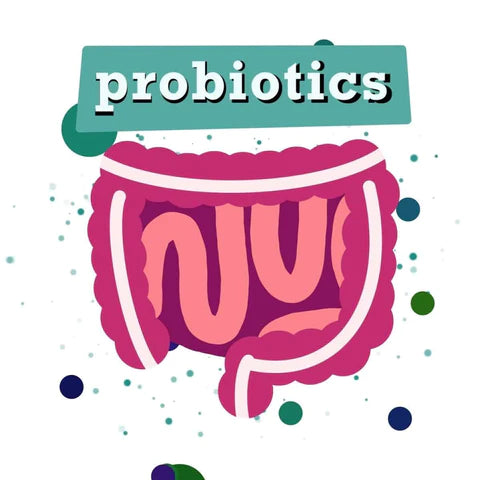
Probiotics and Their Impact on Histamine Intolerance
Share
Histamine intolerance is a health issue that affects many people around the world, and it's becoming increasingly prevalent. It is a condition in which the body is sensitive to histamine, leading to various unpleasant symptoms. In an effort to find relief, many people turn to probiotics, a group of microorganisms that are beneficial for gut health. In this article, we will explore the impact of probiotics on histamine intolerance and gather the opinions of experts in the field. But first, let's go over the symptoms of HIT.
Symptoms of Histamine Intolerance
Symptoms can be numerous, and HIT can manifest differently in each individual. Among the most common symptoms are:
Skin issues: skin irritation, redness, swelling
Digestive tract problems: diarrhea, bloating, cramps, abdominal pain, nausea
Respiratory issues: itching and swelling of the lips, nasal mucosa swelling or, conversely, a runny nose, asthma-like breathing difficulties
Other symptoms: migraine-like headaches, heart palpitations, dizziness, changes in blood pressure, loss of consciousness
Other chronic manifestations typical of this condition include:
Chronic fatigue
Painful menstruation
Nervousness, consciousness disorders, sleep disturbances
Histamine intolerance is not a food allergy
Histamine serves several important functions in the body, such as activating the nervous system and stimulating gastric acid production. The enzyme diamine oxidase (DAO) is found in the small intestine and is responsible for breaking down histamine.
While an allergic reaction in the body results from the immune system's incorrect response to allergens, histamine intolerance involves an imbalance between histamine and the DAO enzyme. Insufficient DAO levels lead to the accumulation of histamine in the body, resulting in a reaction similar to an allergy, but not a true allergy.
How can probiotics help us?
Now, let's focus on the facts, scientifically substantiated facts:
Professor David O. Mörkl, head of the department of nutrition and metabolism at the University of Vienna, emphasizes the importance of maintaining a balanced gut microbiome in addressing histamine intolerance. "Probiotics can help in restoring a healthy gut flora and improving digestion. This can reduce the body's histamine levels and minimize unwanted symptoms."
Dr. Petra Zieglmayer, allergist and immunologist: Dr. Zieglmayer explains that probiotics can have a beneficial effect on histamine intolerance by regulating the immune system. "Probiotics can stimulate antibody production and reduce inflammation, which can help alleviate allergic reactions associated with histamine."
Dr. Michaela Merten, gastroenterologist and specialist in histamine intolerance, "It is important to choose the right type of probiotics for treating histamine intolerance. Some probiotic strains can produce histamine, which can worsen symptoms," the doctor adds and recommends selecting probiotics with low histamine content while monitoring the body's response to the chosen probiotic therapy.
Ing. Peter Szalay, biochemist and expert in targeted metabolic tuning, a tailored plan to "set things right," activate genes that improve metabolism and simultaneously limit the effects of genes that disrupt it and are unique to each individual. Ing. Peter Szalay reminds us: "Probiotics alone cannot cure histamine intolerance, but they can be part of a comprehensive treatment approach. It is important to emphasize that every body is individual, and the response to probiotic therapy may vary."
Histamine intolerance can be an uncomfortable condition that affects the quality of life for those with this condition. While probiotics may not be a universal solution, experts and research consistently highlight their benefits in alleviating symptoms of histamine intolerance. However, it's important to choose appropriate probiotics that support a healthy gut microbiome and minimize histamine production.